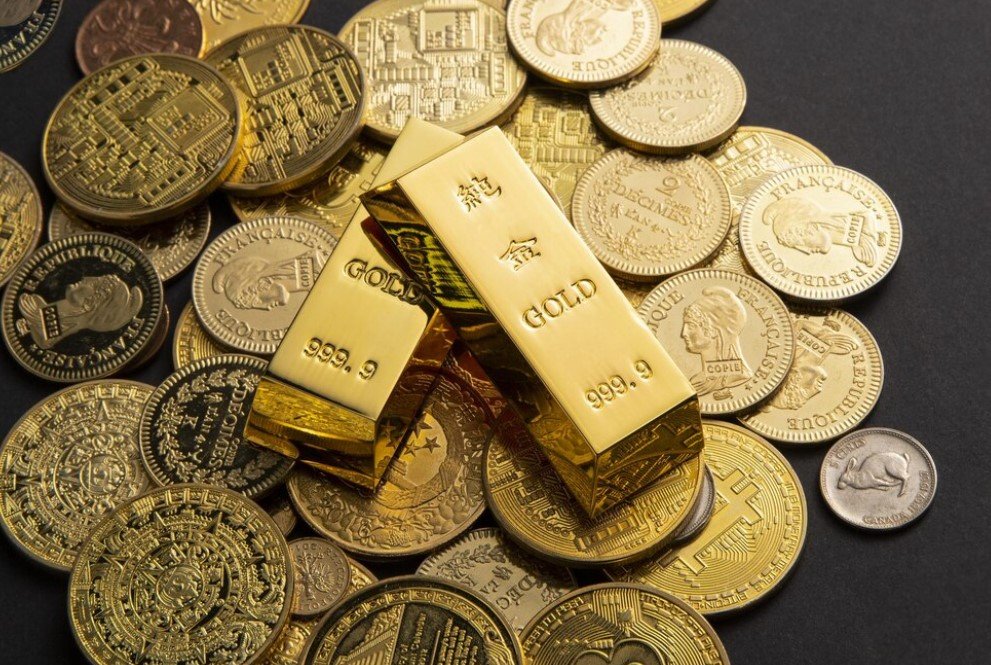Gold is one of the most valuable and sought-after assets in the world. It is widely used as a store of value, a hedge against inflation, and a symbol of wealth and power. Many countries keep gold as part of their official reserves to enhance their economic stability and security.
But which country has the most gold reserves in the world? And where does India stand in the global ranking? According to the latest data from the World Gold Council, a leading authority on gold and its markets, the United States has the largest gold reserve with 8,133.46 tonnes, followed by Germany with 3,352.65 tonnes and Italy with 2,451.84 tonnes.

India’s gold holdings surge in recent years
India, the second-largest consumer of gold in the world, has the ninth-largest gold reserve with 800.78 tonnes, valued at $48,157 million. Gold accounts for 8.13 percent of India’s total foreign reserves, which stood at $586.9 billion as of 29 September 2023.
India’s gold holdings have increased significantly in recent years, as the Reserve Bank of India (RBI) has been buying the yellow metal to diversify its reserves and reduce its dependence on the US dollar. The RBI has added 248.9 tonnes of gold to its reserves since 2017, including nine tonnes in the September quarter of 2023.
The RBI’s gold purchases are in line with the global trend of central banks increasing their gold holdings amid rising economic uncertainties and geopolitical tensions. Gold is considered a safe-haven asset that can preserve its value and liquidity in times of crisis.
Other countries that maintain gold reserves
Apart from the top 10 countries, there are many other nations that hold gold as part of their official reserves. Some of them are:
- Turkey, with 478.97 tonnes of gold, ranking 11th in the world.
- Taiwan, with 423.63 tonnes of gold, ranking 12th in the world.
- Uzbekistan, with 383.81 tonnes of gold, ranking 13th in the world.
- Portugal, with 382.63 tonnes of gold, ranking 14th in the world.
- Poland, with 333.71 tonnes of gold, ranking 15th in the world.
- Saudi Arabia, with 323.07 tonnes of gold, ranking 16th in the world.
- United Kingdom, with 310.29 tonnes of gold, ranking 17th in the world.
- Kazakhstan, with 309.38 tonnes of gold, ranking 18th in the world.
- Lebanon, with 286.83 tonnes of gold, ranking 19th in the world.
- Spain, with 281.58 tonnes of gold, ranking 20th in the world.
The International Monetary Fund (IMF) also holds 2,814 tonnes of gold, which is the third-largest amount in the world. However, the IMF does not consider its gold as a reserve asset, but rather as a financial asset that can be used for its operations and lending activities.
The significance of gold reserves
Gold reserves are an important indicator of a country’s economic strength and sovereignty. They can help a country to maintain its currency value, protect its financial system from external shocks, and support its international trade and payments.
Gold reserves can also enhance a country’s geopolitical influence and prestige, as gold is a universally accepted and respected asset that can be used for diplomatic and strategic purposes. For example, some countries have repatriated their gold from foreign vaults to assert their sovereignty and security, while others have used their gold to support their regional or global initiatives and alliances.
Gold reserves are also a reflection of a country’s cultural and historical affinity with the precious metal. Many countries have a long and rich tradition of using gold for various purposes, such as jewellery, ornaments, religious ceremonies, and social customs. Gold is also associated with various beliefs and values, such as prosperity, purity, and auspiciousness.
Gold reserves are therefore not only a matter of economics, but also of politics, culture, and identity.



















